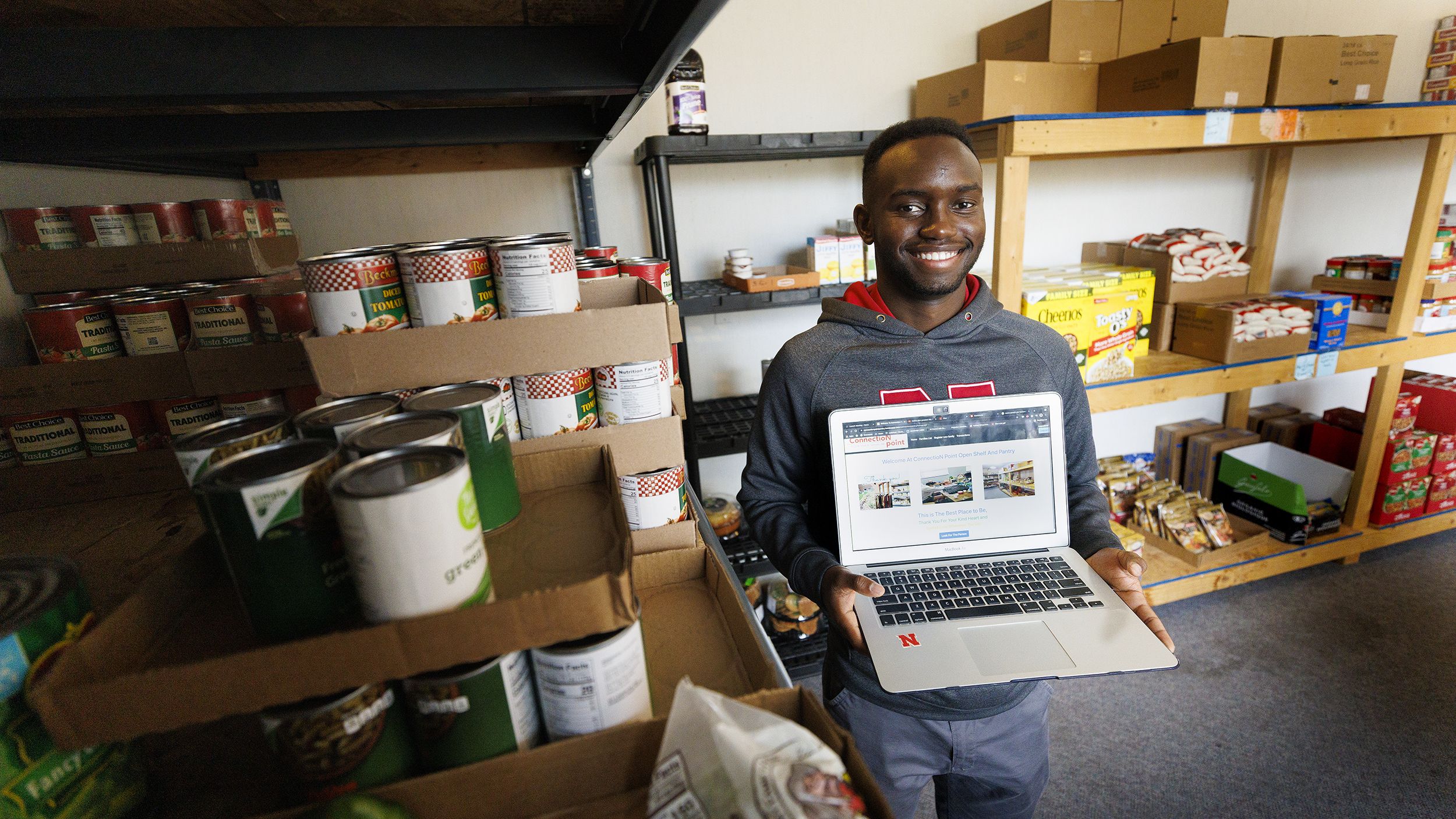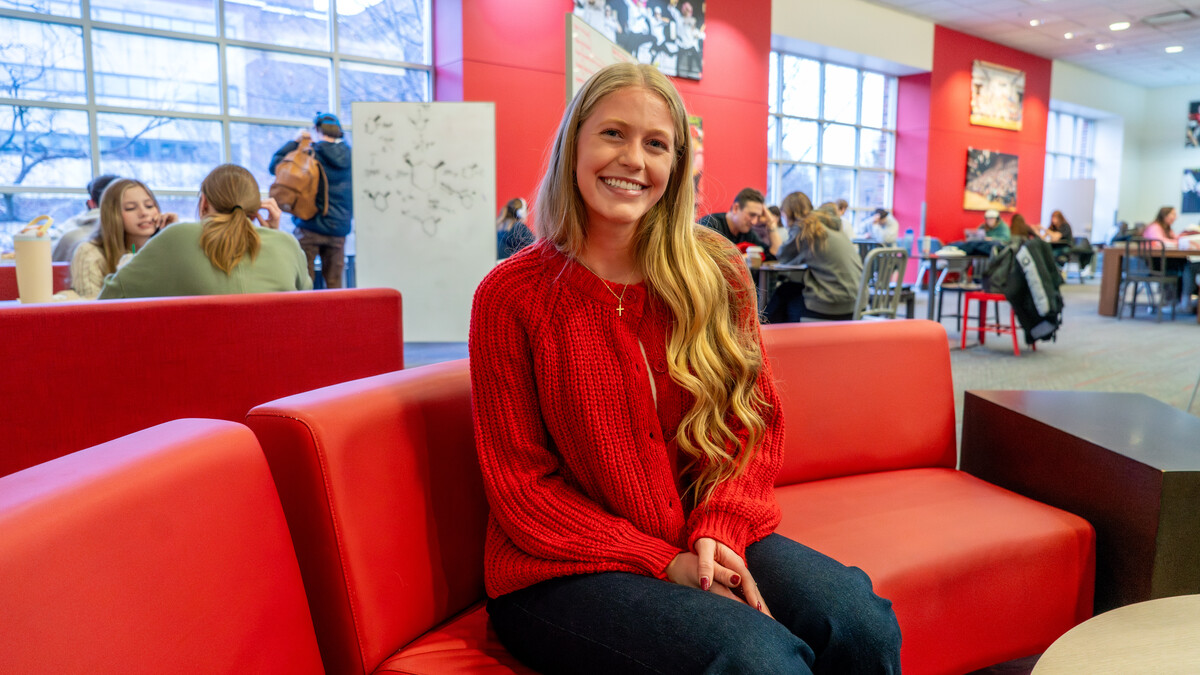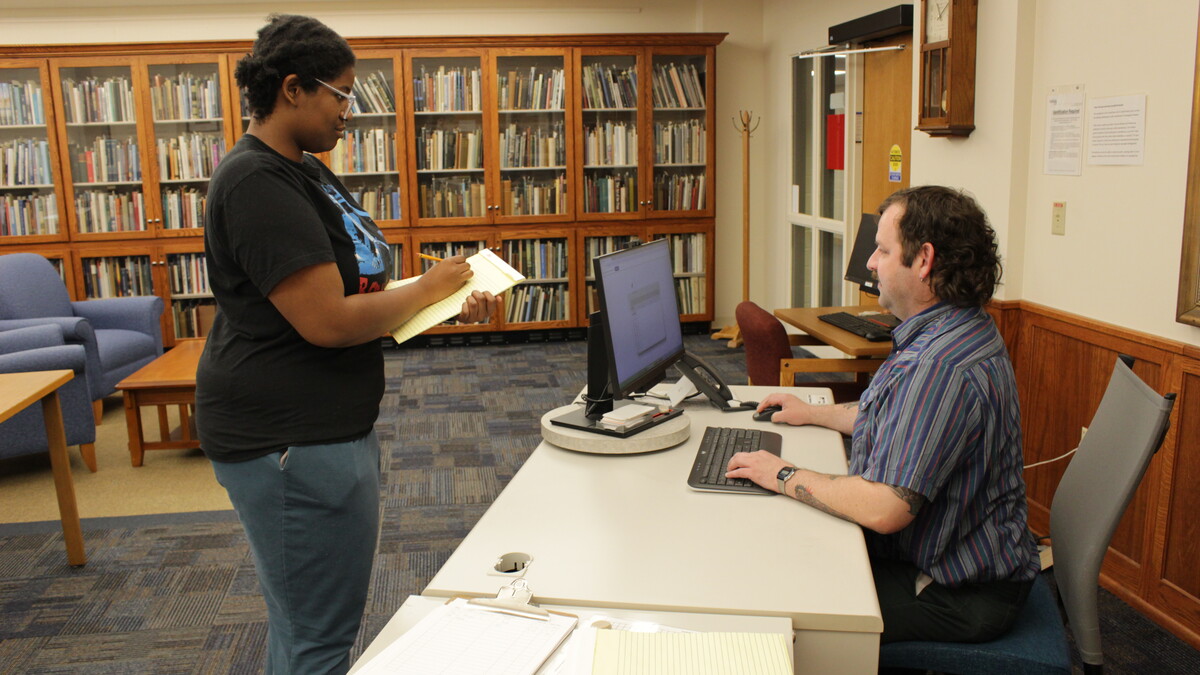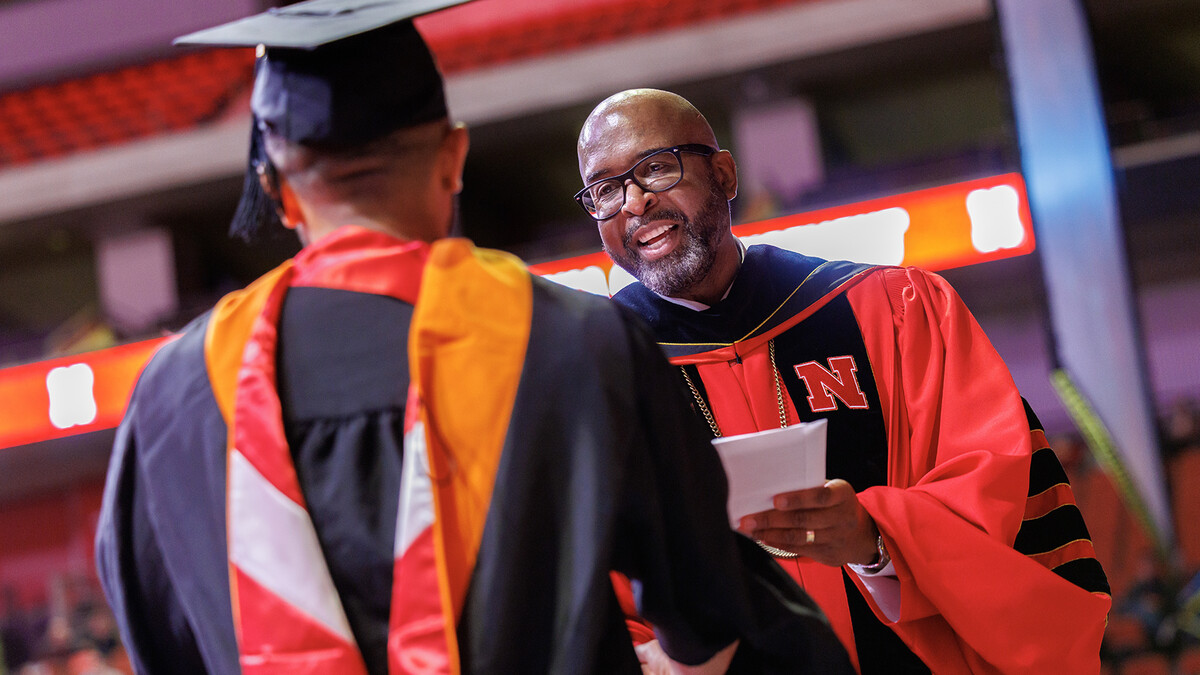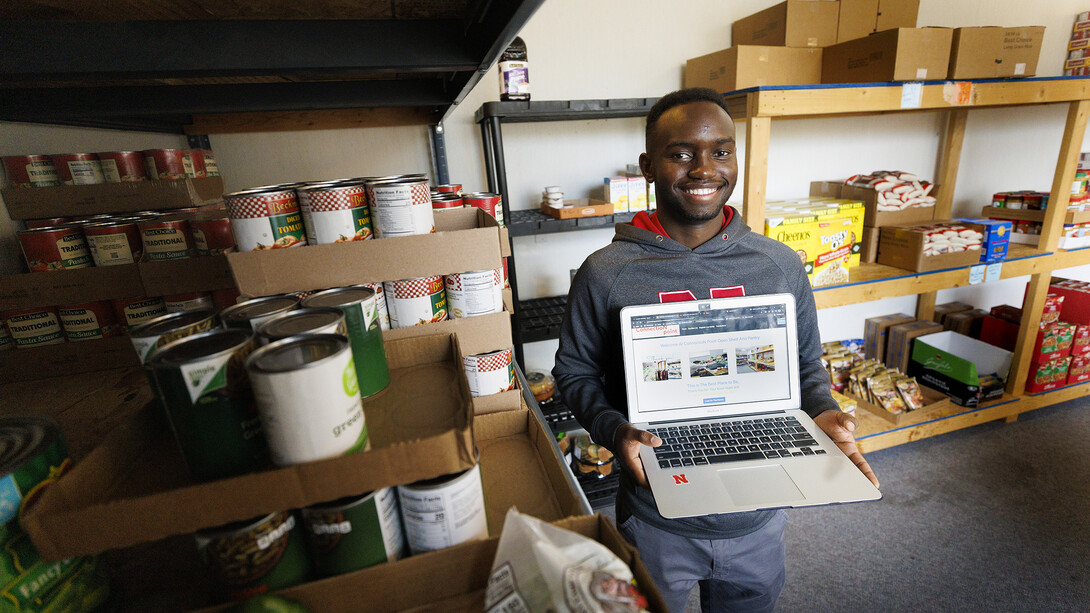
Gabin Kundwa saw a problem and thought he might be able to help solve it.
Kundwa, a senior integrated science major, CUSP scholar and Honors student, was a sophomore when he first came in contact with Connection Point, a church and outreach center that edges the University of Nebraska–Lincoln’s East Campus. As a class assignment in ALEC 120: Interpersonal Communication, students were asked to complete 20 hours of community service, and Kundwa chose to volunteer in Connection Point’s Open Shelf Pantry.
Long after his 20 hours were satisfied, Kundwa, who came to Nebraska from Rwanda, kept volunteering.
“I felt like a part of the community, and so I continued,” Kundwa said.
And while volunteering, he got an idea.
The Open Shelf Pantry, which offers food, household supplies and clothing to anyone in need, is an affiliate of the Lincoln Food Bank, so records must be kept on families served, and volunteers were using a note card and file system to keep track of these records by hand.
With the pantry serving about 120 families a month, Beth Graverholt, pastor of Connection Point, said the note card system was large and it was a bit time-consuming to check people in and complete reports.
“All in all, the food we give away touches about 12,000 people a year,” Graverholt said. “(Gabin) looked at the big box of cards and watched us struggle, trying to alphabetize and find the right card, and he goes, ‘Have you ever thought about putting that on a computer?’ But I didn’t know how to set that up or how to get started, and we didn’t have funding for that.
“He said, ‘Let me see what I can do.’”
Kundwa, who had been teaching himself computer programming and web design, thought he might be able to help by building a website that would streamline the intake process for the pantry and run reports with the click of a button.
“What motivated me was that I want to use my computer science knowledge for community development,” Kundwa said. “I ask myself how can I use this to help people or help my community? And, I have these skills, so how can I solve a real-life problem?”
Kundwa said he has always been service-oriented, that it was part of his upbringing as the oldest child in his family, and it’s part of his future. He plans to attend graduate school for a career in urban planning, in part to help build stronger communities. During the COVID-19 shutdown in 2020, Kundwa also found a way to serve the community by gathering unused food from his fellow international students in university housing and donating it to the People’s City Mission and Connection Point.
When we see 4 car loads full of Rwandan UNL students with a ton of stuff roll up, we do a happy dance! They brought in a bags and bags and bags of clothes, bedding, shoes, and FOOD! Smiles all around. Thank you!!!! pic.twitter.com/lrELEFL1dl
— People's City Mission (@PCMLincoln) August 13, 2020
The Connection Point project also served as a valuable learning experience for Kundwa as he honed his computer science skills outside the classroom.
“One time, when I had to host it, I don’t know what happened, but it crashed all the codes,” Kundwa said. “It was stressful, but it taught me that I need to ask for help and that’s OK, because it’s something I could not accomplish myself, and I learned a lot.”
He leaned on a mentor, Chris Bourke, associate professor of practice in computer science at Nebraska, and Schadrack Niyibizi, a friend in Rwanda.
After months of work on the program — and several pitfalls — Kundwa was ready to show the website to Graverholt, who was impressed and excited to fold the new system into the pantry’s operation.
“It makes it a lot faster and easier to train new volunteers,” Graverholt said. “Having it digitized makes the process so much smoother for check-in, and Gabin worked with me to make the system work for us in terms of what we needed.
“The solution he came up with is great. He saw the problem and fixed it because he wanted to help his community.”
